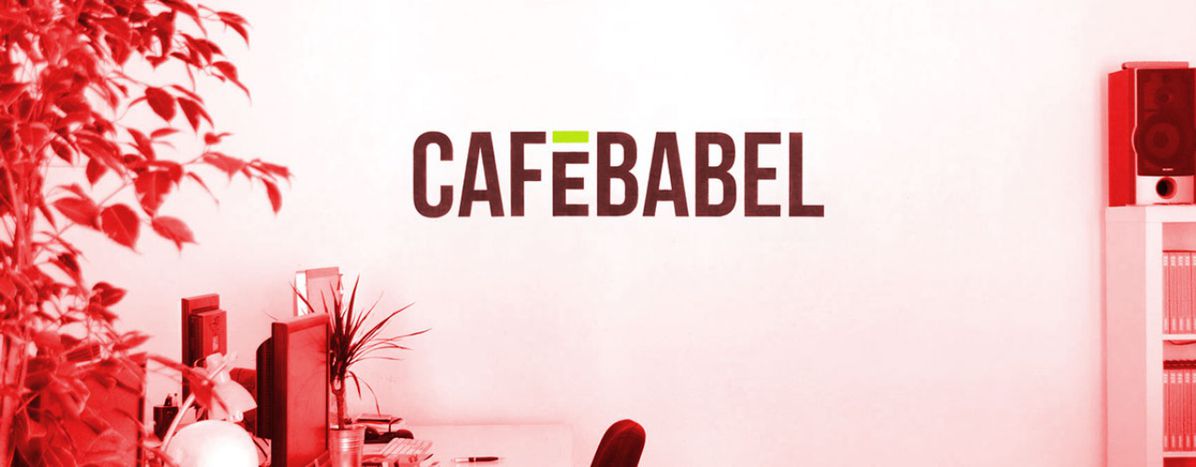
Europe needs a new story
Published on
Translation by:
CafébabelIn celebration of Europe Day on the 9th of May, we published an op-ed calling for an alternative narrative on the Old Continent. We believe it is up to young people to write the next chapter of Europe’s history.
The 9th of May has just passed. Also known as Europe Day, it was the pivotal moment in which the Schuman Declaration was signed in 1950, a moment when Europeans decided to put an end to centuries of conflict. History books recall it as the day the French and German coal and steel industries were merged into one common High Authority, ensuring that neither country wage war and start working together… you know how the story goes.
On May 9th 1950, Europe had a great story to tell. Back then, the continent was built on dreams of glory, on staggering stories and illustrious personalities. Despite having just come out of an atrocious war, Europe was recovering rapidly, equipped with strong ideals and ambitious intentions. History saw all of this happen and experienced the Old Continent in all its splendour. Still, Europe hadn’t yet founded its institutions. It was a book, a novel. In his 1961 book History of the Idea of Europe, Italian politician Federico Chabod spoke about the notion of “a European consciousness”, which he defined as a mix of Greco-Roman antiquity and French, Italian, German and British ideas that dominated previous centuries. Enlightened individuals went by the names of Burke, Guizot, Machiavelli, Montesquieu, Rousseau, Voltaire… you know how that story goes, too.
Let’s get straight to the point: today’s Europe no longer has a story. Half a century after its foundation was set up by Schuman, Monnet or Chabod, Europe is no longer a tangible concept and has become extremely difficult to defend. All you have to do is turn on your TV, computer or mobile phone in the event of a ‘great’ European protest to see how commonplace it is to hate it.
"Europe is no longer a tangible concept and has become extremely difficult to defend."
As for us, we’ve come to the end of a book we are closing too soon. Too late. Somewhere in the 2000s, Europe’s story stopped being written. We had just started our studies when the history that was being taught to us was that of disillusionment. Thrown into a world that was crumbling like two giant skyscrapers, we grew with an amalgam of anxiety-ridden words (crisis, austerity) and acronyms (ESM, ECB, IMF). Instead of starting a new chapter, we inherited an old and indebted one; a debt that we would have to pay off. We are only in our twenties, and we’re already screwed. What’s worse, we are constantly reminded of just how screwed we are with an endless list of nicknames associated with our generation: “lost”, “sacrificed”, “spoiled”, “rotten”, “doomed”. We’re associated with the last three letters of the alphabet, generation “XYZ”.
How can we know what comes next if we’re already at the end of it all?
So what happened? Well, nothing and everything. Nothing, because Europe’s history was written out in disembodied spaces where it’s no longer a matter of telling but of defending it with weapons that look like cork rifles. Everything, because other narratives started popping up in the vacuum of European storytelling. Passionate, brutal and extreme narratives. From an open book to which everyone could bring in their own stories, Europe simply evolved into the EU, an ivory tower that houses unrealistic fantasies and pedantic sermons. Can a fancy speech in front of the European Parliament change everything? If we’re being honest, not really. Otherwise we would still be stuck in a binary, simplistic and dichotomous concept; a never-ending story where you are either “pro-European” or “anti-European”.
"From an open book to which everyone could bring in their own stories, Europe simply evolved into the EU, an ivory tower that houses unrealistic fantasies and pedantic sermons."
By now, you’ve probably guessed what it is we’re after. We want to change the stories we tell about Europe. We want stories to escape the dark hallways in Brussels, leaving behind its institutional jargon and complex acronyms. We want them to speak to everyone and to be seen from everywhere. We want to transform Europe from an abstract concept into a concrete reality.
How? By changing the way we talk about Europe. It’s 2018 and despite everything, there are still great stories to tell. From digital nomads in Lisbon whose entire worlds can be found on a keyboard, to young Kurdish fighters who found refuge in Scandinavia, to young Slovakian whistleblowers who came close to overthrowing their own government, or a young Italian woman in her thirties who helped bring Emmanuel Macron to France’s presidency. And that’s just naming a few.
New stories need new voices. Our future European intellectuals – the next Montesquieu, Mazzini or Burke – should be able to speak and read in several languages. That’s why we have to double our efforts to create a new European environment where young people feel at home. A new experience, one that is creative and positive, that will impact the political and journalistic spheres. A movement that will take the best spirit of our generation and incite young Europeans to tell their everyday stories, as well as stories about the continent itself, from the Russian Steppes to the ochre cliffs of the Faroe Islands.
Europe’s history doesn’t end here, it’s up to us to write the next chapter.
Translated from L'Europe a besoin d'une autre histoire



